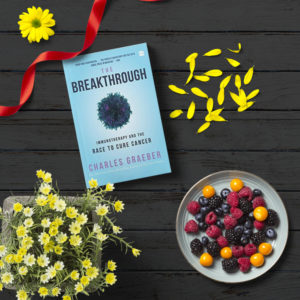Embracing Your Introverted Nature:
In a world where the spotlight often shines on the extroverts, Susan Cain’s book “Quiet: The Power of Introvert” stands as a beacon of validation for the introverted souls among us. As I ventured into the pages of this remarkable book, I found myself resonating deeply with the stories and wisdom it holds.

Breaking Free from Societal Expectations:
I used to puzzle over my own preference for solitude over social gatherings and the exhaustion that bubbled up at the mere thought of a party. I’d attempted to mimic the chattiest folks, but the act never quite fit. It was like trying to wear a size 10 shoe when you’re a size 7 – awkward, uncomfortable, and ultimately futile. Until, one day, I decided to seize control, break free from the chains of societal expectations, and embrace what my heart truly desired.
Cain’s book is the lifebuoy for those like me drowning in the sea of societal expectations. I felt a wave of relief wash over me. I realized I wasn’t weird; I was just embracing my true nature. If I wanted to spend my Saturday with a captivating novel rather than navigating a sea of partygoers, that was perfectly okay. I finally accepted that deep conversations fueled my soul while small talk barely ruffled my feathers.
Inspiring Introverted Icons:
The book shares inspiring stories of introverts who have excelled in life, despite their gentle and understated nature. It reminds us that being introverted doesn’t equate to being inferior. In fact, introverts bring their unique strengths to the table like their ability to engage in deep, meaningful conversations, their keen observation skills, their capacity to listen actively and can shine just as brightly, albeit in a different way. You don’t have to be loud and aggressive to make a mark; you need conviction and a firm voice to convey your thoughts.
The tales of iconic figures like Rosa Parks, Mahatma Gandhi, and Bill Gates, Steve Woz and many more resonated with me deeply. Cain’s perspective sheds new light on their personalities, revealing how their introverted qualities were powerful assets in their quests for change and innovation.
Parallels with Personal Heroes:
As I continued to reflect, I found myself recalling personal favorites from my teenage years, such as Rahul Dravid and Ajay Devgan. Rahul Dravid, amidst a generation of hard hitting cricketing legends like Sachin Tendulkar, Saurav Ganguly, and Sehwag, stood out as the “Wall” – solid, unwavering, and steadfast. He shone by staying true to his nature, defying the trends of power-hitting cricket and forging his own unique style. Ajay Devgan, known for his understated and impactful acting, also embraced his introverted nature and found his path to success in an industry often dominated by flamboyance.
Guidance for Supporting Introverts:
“Quiet” not only illuminates the personal journey of introverts but extends its wisdom to offer valuable guidance for spouses, parents, educators, and employers on how to foster and empower introverted individuals. It advocates for a shift in societal perspectives, urging us to appreciate introverted qualities rather than constraining them within the confines of limitations. The book serves as an insightful guide, not only for introverts but also for extroverts seeking to gain a deeper understanding of the quieter individuals in our midst.
Throughout “Quiet,” Cain also provides practical solutions for introverts to navigate the challenges of an extroverted world, offering valuable insights on finding a restorative niche to reenergize, and discovering that sweet spot where you can thrive and enjoy activities typically dominated by extroverts.
Understanding the Introvert-Extrovert Spectrum:
What’s truly remarkable about “Quiet” is that it refuses to stereotype introverts or extroverts. Instead, it encourages us to understand our true nature and honor it. People aren’t just introverts or extroverts; it’s more of a mix. Some folks might seem outgoing but feel nervous in certain situations (like Barbra Streisand on stage), while others, like Bill Gates, might be quieter by nature but can do well in social and work settings. There are introverts who can occasionally don the mask of extroversion but need their own space to recharge.
Conclusion:
In conclusion, “Quiet” isn’t just a book; it’s an ode to the power of introverts and a testament to the value of remaining true to your nature. It teaches us the art of finding balance between embracing our introverted qualities and navigating an extroverted world. It’s a compass for those who seek emotional and physical well-being while making their mark in a society that often shouts louder than it listens. So, grab your favorite book, find a cozy nook, and let Susan Cain’s words reassure you that being an introvert is not a flaw; it’s a superpower in its own right.
Author Background:
Susan Cain, a former corporate lawyer and renowned public speaker, brings a unique blend of legal expertise and communication skills to her writing. Her personal experiences as an introvert navigating extroverted environments serve as a driving force behind “Quiet.”
“Quiet: The Power of Introverts in a World That Can’t Stop Talking” was first published in 2012 by Crown Publishers and has since seen several editions, including an updated version in 2020.
Discussion Questions:
For those looking to delve deeper into the themes of “Quiet,” here are a few discussion questions:
- How has societal perception of introverts evolved over the years?
- Can introverts truly thrive in extroverted settings, and if so, how?
- Share a personal anecdote of when you’ve felt the power of introversion in your life.
My Personal Takeaway
Introverts can harness the power of speech to convey their thoughts and ideas effectively, while extroverts can recognize the strength in moments of silence to reflect and listen more attentively.



